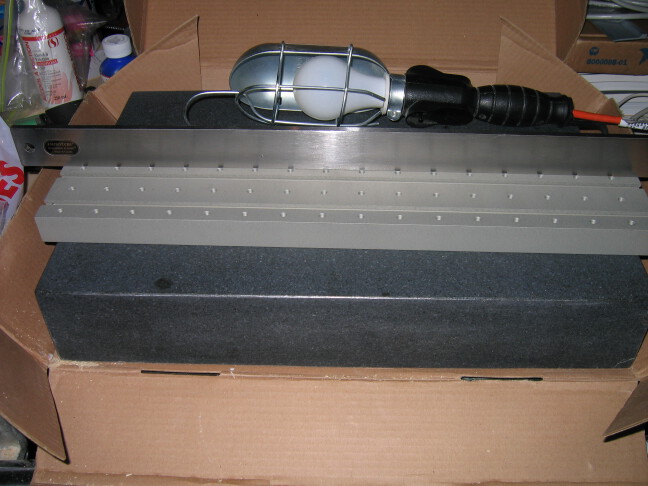|
The first thing I did was to check the table out for flatness. I have a
12 x 18 x 3 granite surface plate that I purchased from
Busy Bee Tools. I put the table
on the surface plate. The table "sounds flat". This is hard to describe,
but when you place an object on a surface plate, flat objects (or close to
flat objects) make a sound which is different from objects which aren't
flat. I then put my
Veritas 24" steel straight edge
(which is accurate to within 0.001" over its lenght) on the table and
shone a bright light behind it. I've been told that the eye is capable of detecting
light through cracks as small as 0.0001" (one ten thousandth of an inch).
I was unable to detect any light between the straight edge and the table.
If I positioned the straight edge over the holes, then a small sliver of
light could be seen just on either side of the holes, which is probably caused by the
tapping operations.
I also noticed that while the anodized finish is smooth, it wasn't quite
as smooth as the original table.
Tim Goldstein (from A2ZCNC) thought
that this was due to the combination of cast aluminum being anodized.
Tim said that 6061 from the same anodizing batch was as smooth as
the original table.
Bigger...
|
